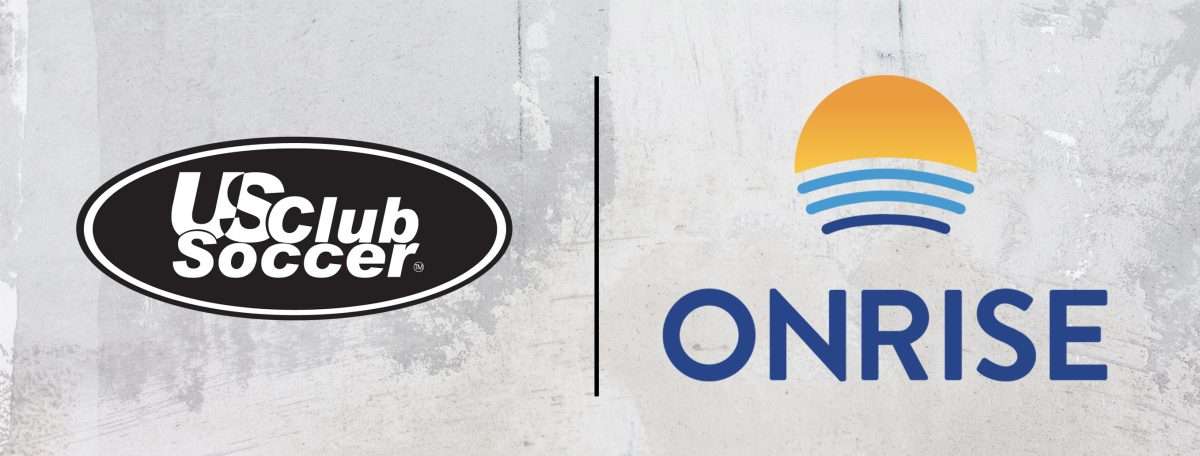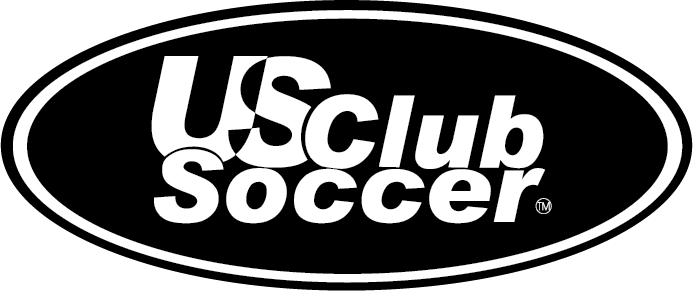Gentle goals and the science behind resolutions for athletes (via Onrise)
Editor’s Note (Jan. 5, 2024): This article was submitted by Onrise, which US Club Soccer has partnered with for ongoing educational resources related to mental health. The author, Tasha Saunders, is the VP of Player Care at Onrise. Tasha has her Player Care Certification and has completed training in Mental Health First Aid training for Adults and Youth. She grew up playing competitive soccer and continued her career at Sewanee as a four-year starter.
Going into a new year, many people create resolutions for themselves; however, not everyone is successful. Let’s jump into how to create gentle goals, and how we can continue to be successful with the goals that we have already created for ourselves.
In previous articles, we have talked about creating goals with your coaches, families or friends for the new year. What if the goals they gave you – or you gave yourself – already do not feel attainable less than a week into 2024?
So, what are gentle goals? As athletes, we don’t often use the word “gentle” in things; let’s use the word “finesse.” For the coaches and soccer players reading this, think of the drill called “power and finesse.” If you are not familiar with the drill, it goes something like this:
- There are players on either side of the goal playing balls in, to the top of the box.
- The first shot from far out needs to hit with power, and the second ball that gets served it the athlete come closer to the goal and must place the ball in the goal with finesse.
Finesse is defined as “extreme delicacy or subtlety in action, performance or skill.” Thinking about gentle goals, these are goals we can execute with finesse.
Before we get into some examples of these goals, it’s important to talk about how our goals can be achieved. If you have not already read “Atomic Habits” by James Clear, I highly recommend it. In the book, Clear speaks about a strategy he calls “habit stacking.” Clear explains: “When it comes to building new habits, you can use the connectedness of behavior to your advantage. One of the best ways to build a new habit is to identify a current habit that you already do each day and then stack your new behavior on top” (Source: Clear, 74).
For example, every day you (probably) take a shower. That is an example of an easy habit that you already do. If you want to be successful in implementing a new habit, you would attach it to the already successful habit. Now every day when you shower, you attach the new habit to it. Before you shower, if you want to get stronger, you could do 30 push-ups. Instead of making the goal, “I want to do 30 pushups a day” without a time frame or additional habit around it, make the goal “Before I shower every day, I want to do 30 push-ups to become stronger.”
In reflecting on the goals, you have set for 2024, let’s also set some “gentle goals” or goals you can execute with finesse. Additionally, in creating these goals you can achieve with finesse, let’s add a way to habit stack them.
Athletes, coaches and parents: As a soccer family, we have the wonderful opportunity to practice and play games outside. Set a goal for yourself to take in the weather before locking into the practice at hand. Feel the sun against your face and show gratitude for the ability to be able to be outside. Athletes, you could habit stack this with putting your shin guards on. “After I put my shin guards on, I will take a deep breath and feel gratitude for the ability to play outside.” Parents: If you watch practices, think of a habit you do every practice. “After I set up my chair on the sideline, I will take a deep breath and feel gratitude for the ability to be outside.” Coaches: Think of your daily practice and game habits. After you set up the cones for the practice ahead, take a deep breath and feel gratitude for the ability to be outside coaching the sport you love.
Additional examples of gentle goals may be showing up early once a week, not for extra training, but to connect with friends. Habit stack this leaving early with filling up your water bottle. After I fill up my water bottle, I am going to go straight to the car five minutes early instead of scrolling on my phone.
Another example for coaches and players may be checking your phone right after practice. Being outside at practice, engaging in the sport you love is so important. It is also a seemingly rare thing these days to not be on your phone for more than an hour. If you find yourself jumping straight to your backpack to check your phone after practice, set a gentle goal to wait to check your phone until you get to the car. Being present with your teammates is essential to strengthening your team overall.
We’ve talked about how to create goals you can execute with finesse, but let’s quickly touch on the psychology and science behind setting goals or resolutions and completing them. When you create a goal, your brain releases dopamine, which in turn creates feelings of motivation and productivity. When you achieve your goals, even gentle goals, your brain releases dopamine, as well, leading to the feeling of satisfaction. Serotonin is also released. Dopamine and serotonin together lead to the feeling of happiness or wellbeing. (Source: The science of setting goals – and how to achieve them.)
If the goals you originally set this year no longer feel attainable, reset them! Create goals you can complete with finesse and consider the science behind achieving them. Set attainable goals, create a habit stacking system, and feel the psychological benefit in achieving them.
Sources:
ICS Learn. (2022, March 17). The science of setting goals – and how to achieve them. https://www.icslearn.co.uk/blog/study-advice/the-science-of-setting-goals-and-how-to-achieve-them/
Clear, J. (2018) Atomic habits: An easy & proven way to build Good Habits & Break Bad Ones: Tiny Changes, remarkable results (pp. 1–306). Penguin Random House.
ABOUT ONRISE
Onrise is a compassionate player care and mental health company. We are a place where retired athletes and clinicians unite to revolutionize athlete mental health care. At Onrise, we believe that everyone needs efficient strategies to cope with mental challenges both on and off the field. From game day to a big test day, our mission is to ensure that athletes have access to high-quality athlete to athlete support, therapy, and psychiatric care, regardless of their circumstances. Check out our website for more information.
ABOUT US CLUB SOCCER
A National Association member of the U.S. Soccer Federation, US Club Soccer fosters the growth and development of soccer clubs in order to create the best possible environment for players of all ages.
Anchored by Players First and its pillars of Club Development, Coaching Development, Player Development, Referee Development, Parent Engagement and Player Health & Safety, US Club Soccer offers registration, league- and cup-based competition platforms, player identification and a variety of other programming, resources and services.
US Club Soccer is sponsored by Nike, DICK'S Sporting Goods and Gatorade.
usclubsoccer.org | App | Instagram | Facebook | X | YouTube |



